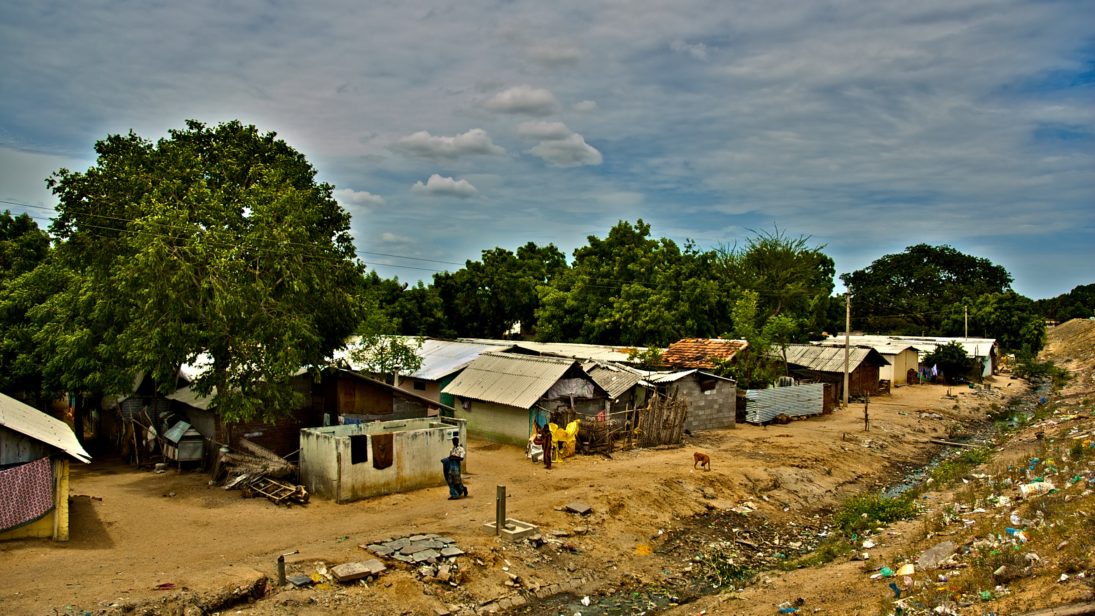
This past February, protesters in the Indian state of Assam burned down the offices of India’s ruling Bharatiya Janata Party (BJP) in response to a proposed amendment to the Citizenship Act of 1955. The BJP first proposed the bill, which would have granted citizenship to non-Muslim refugees from neighboring countries, in 2016. Shortly after, Prime Minister Narendra Modi acted further upon the anti-refugee sentiment he had espoused previously by announcing a government plan to deport Rohingya refugees. This was a shocking first in a country that has traditionally practiced non-refoulement (a policy of not forcing asylum seekers to return to their home countries in which they may face persecution).
The intended deportation of the Rohingya, a Muslim minority from the Buddhist country of Myanmar, and the proposed amendment of the Citizenship Act are undeniable ruptures in the migration policy of the world’s largest democracy. In Assam, protesters felt the plan to bar Muslim migrants from naturalization was at best a nationalist ploy to win over Hindu migrant voters, and at worst a way to deny citizenship to any Muslim in a border state by virtue of labeling them an illegitimate migrant.
Despite India’s intention of strengthening its borders, the country cannot do so without harming its image in the world. New Delhi is not a signatory to the United Nations 1951 Refugee Convention or 1967 Protocol and thus does not maintain a national refugee law. Without this, the ad hoc refugee policy India currently maintains in place is fragile and subject to ever-changing political calculations. This can make India appear weak and malleable as well as opportunistic and discriminatory. Though the BJP dropped the bill to amend the Citizenship Act amidst backlash from protesters and the international media, it should take another step forward and prioritize the creation of a national refugee policy.
India’s Refugee System: Open Borders toSome?
India has a history of welcoming refugees as a means of projecting its relative strength and security as the economic powerhouse of South Asia. In the past, the country maintained relatively open borders. The federal government accepts certain regional groups on a prima facie basis (by virtue of their country of origin, the government assumes they are fleeing persecution) and takes charge of their care. The two most notable groups in this category are Tibetans and Sri Lankans, collectively numbering over 150,000. Operating under the assumption that these cases are legitimate, India offers these refugees welfare benefits on a national level.
Refugees from other countries do not receive protection by virtue of their country of origin, and the United Nations High Commissioner for Refugees (UNHCR) processes these cases. As of 2019, there are 41,000 refugees under the UNHCR mandate, most of whom are Afghan and Rohingya refugees. These refugees only have status from the UNHCR directly and depend on its offices in Delhi for identification. They are not eligible for benefits on a national level, often forcing them to stay in Delhi, close to the UNHCR. To prove eligibility for long-term residence, migrants must make their case again to the national government that they are indeed fleeing persecution and not economic hardship.
For decades, India gained soft power from its status as a major host country for large numbers of prima facie refugees. Its policies put forth an image of India as strong against China and noble friend of Sri Lanka – an image that has been tarnished by the BJP’s realpolitik policies of exclusion over inclusion.
For decades, India gained soft power from its status as a major host country for large numbers of prima facie refugees. Its policies put forth an image of India as strong against China and noble friend of Sri Lanka – an image that has been tarnished by the BJP’s realpolitik policies of exclusion over inclusion. The proposed amendment to the 1955 Citizenship Act declared that only Hindus, Sikhs, Christians, Zoroastrians, Jains, and Buddhists are ever eligible for eventual naturalization, despite the Citizenship Act stating that any person residing in India for over 12 years is eligible for nationality. The wording of this bill was careful, as it listed each eligible religion instead of stating that “religious minorities” are eligible for naturalization. This allowed for religious differentiation that excluded Muslims from the category of vulnerable migrants.
The spike in anti-Muslim national rhetoric coincides with certain shifts in demographics among refugees. Afghan refugees first arrived in India in the 1990s, but the first wave of migration was comprised mostly of Afghan Sikhs and Hindus. The federal government kept borders open for this population and at peak migration, even allowed for individuals without documentation. Today, the BJP continues to respond to this population by advertising itself as a “natural home for persecuted Hindus.” The government includes Sikhs in its positive rhetoric, declaring them returnees to their homeland. In contrast, Afghan arrivals of more recent years are almost entirely Muslim. Their migration to India is possible due to the same lenient visa policy that covered their Sikh and Hindu compatriots, but the BJP government seeks to edge them out of similar protections upon arrival. All Afghan refugees fall under the UNHCR mandate and the organization grants them short-term rights to reside in the country, but only a long-term visa affords the right to legally work, attend school, and rent. Non-Muslim Afghans are immediately eligible for application, whereas Muslims must enter another arduous process to prove they are refugees and not economic migrants. The Indian government has yet to declare any Muslim group legitimate refugees.

Influences on India’s Refugee Policy
The reality is that migrants seeking shelter in India arrive from too diverse a set of countries and religious backgrounds for religious differentiation to be anything but a disaster. Already, India walks a fine political line between upholding its sovereignty and being influenced by foreign actors. Flexibility in the policy framework allows political allies to demand certain policy changes based on their own security fears. India then acquiesces, as its priority is to be a friendly neighbor to fellow states, but this lack of consistent policy leaves it open to constant grounds for political backlash.
For example, Muslims from Afghanistan have fewer options for assimilation and naturalization as the Indian government is reticent to grant them long-term visas, but India cannot stop their arrival without endangering its relationship with Afghanistan, a major security and trade ally that often praises India’s willingness to accept refugees in their bilateral meetings. Likewise, the number of Iranian migrants to India increases each year, among them Christian converts from Islam. These individuals are apostates and criminals in the eyes of Iranian law. Although India is a strong ally to Iran and seeks to support its desires, it is difficult to justify providing pathways for assimilation to Afghan Christian converts and not their Persian neighbors from next door.
Like Afghan Muslims, Rohingya refugees are only protected by the UNHCR, for short-term residence. The Indian government labels them economic migrants and therefore, ineligible for long-term protections. When India announced plans for forced deportation of the Rohingya in mid-2017, amidst growing concerns in Myanmar over the radicalization of Rohingya refugees, the government’s plan was to deport them to Bangladesh – not their country of origin, Myanmar. This was likely the BJP government’s response to the political will of Myanmar, which labels the Rohingya illegal aliens from Bangladesh. The Indian government sees Bangladesh as a politically inconsequential dumping ground, as the number of Rohingya refugees in India pales in comparison to the 900,000 that reside in Bangladesh. The BJP may feel it is seizing a key opportunity to please Myanmar, but if India bowed to the influence of each of its neighbors, it would find itself in a political quagmire.
Necessity of a Federal Framework
[The] acceptance of refugees is an integral part of India’s leadership in its region. The power of this history should not be undermined by weak points in policy that allow outside actors to determine a course of action — or by discriminatory behavior.
A country-by-country approach to refugee crises is not sustainable for India. The country cannot realistically impose stricter borders without damaging its foreign policy goals. Additionally, the acceptance of refugees is an integral part of India’s leadership in its region. The power of this history should not be undermined by weak points in policy that allow outside actors to determine a course of action — or by discriminatory behavior.
India and other countries that refused to sign the 1951 Refugee Convention cited sovereignty as their concern. It is difficult to sell the idea of the UNHCR taking the lead on a national policy, but fortunately, a viable framework already exists in the South Asian context. The South Asian Association for Regional Cooperation (SAARC) produced a South Asian Declaration on Refugees and the Eminent Persons Group in 2004, which contains the framework for a National Model Law that is in accordance with global human rights standards, but fine-tuned for the South Asian context. If the Indian government adopted the National Model Law or some iteration thereof, it would stand on its own two feet, be able to honor its history as a welcoming host country, and gain status as a regional leader providing critical pathways for assimilation. As refugee crises worsen in the region and worldwide, this is a key opportunity for India to act as an exemplary global power, rather than a weak state prone to opportunism and discrimination.
***
Image 1: EU Civilian Protection and Humanitarian Aid Operations via Flickr
Image 2: Anadolu Agency via Getty Images


